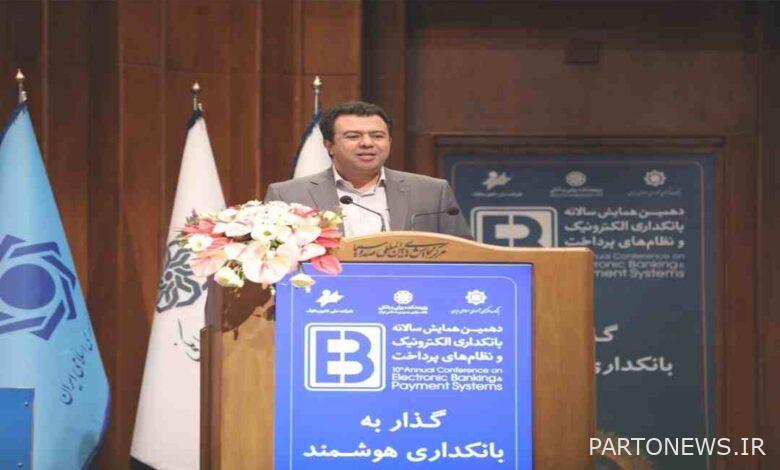The name of the electronic banking conference was changed to “Modern banking and payment systems”.

According to the report of the financial news, citing the public relations of the Monetary and Banking Research Institute, Peyman Ghorbani, the head of the Monetary and Banking Research Institute, read the closing statement of the 10th annual conference on electronic banking and payment systems on Tuesday evening.
He stated that in smart banking, the areas of creating value from data using artificial intelligence and machine learning technologies include a wide range, adding: areas such as marketing and customer relations, security, payment, risk management, regulation, and under the influence of big data technologies are undergoing changes. have become significant in such a way that the transition to smart and data-oriented banking is considered a necessity for the survival of traditional banking.
The Scientific Secretary of the Electronic Banking Conference stated: The Monetary and Banking Research Institute dedicated this year’s conference to the theme of “Transition to Smart Banking” in order to think together and take advantage of the opinions of thinkers, researchers and banking system experts.
He announced: In the two days of the electronic banking conference, a total of 16 specialized meetings, 13 scientific-educational workshops and 24 product introduction workshops were organized for the audience of the conference with the presence of experts and experts in the field of banking and payment systems.
The head of the Monetary and Banking Research Institute noted: In the 10th edition of the Electronic Banking and Payment Systems Conference, a total of 202 articles were sent by professors, students and experts to the conference secretariat, of which 30 articles were approved by the conference’s jury committee and in two days Conference, 18 papers were presented in 6 scientific meetings.
Ghorbani said: Based on the summation of expert discussions, an abstract of key results and scientific achievements in the field of realizing smart banking in the country can be presented in three general areas.
He continued: the field of customer experience, validation and payment security; Lessons learned and global experiences regarding the evolution of validation models, along with the performance of the current validation system in the country, indicate the necessity of transitioning from traditional models to models based on artificial intelligence. Using intelligent customer validation models plays a significant role in credit risk management in the banking network.
Ghorbani stated: The main challenge in smart banking is related to security, quality and integrity of data; Machine learning can be highly efficient and effective if its input data is safe from the risk of manipulation, so paying attention to data governance is one of the requirements for realizing smart banking.
The head of the Banking and Monetary Research Institute emphasized: Online fraud and money laundering detection systems using data mining and deep learning technologies are able to warn about suspicious transactions by extracting financial patterns of customers. It is necessary to pay attention to security standards and requirements, such as accessibility and encryption of customer authentication data, digital signature, etc., to protect customer data and maintain privacy.
He also said about the field of smart regulation and new financial technologies: new technologies in the field of regulation will make the process of monitoring change from a posteriori state to a priori state and enable active monitoring of compliance risk; Applying innovative methods based on artificial intelligence in the field of micro and macro prudential supervision can be useful in identifying and preventing macro economic and financial risks.
Ghorbani further addressed the issue of regulating new financial technologies in smart banking and stated: This issue requires inter-institutional coordination and formulation of integrated policies in line with the foundation and development of reg-techs and sap-techs, as well as the sandbox for the regulation of innovative businesses.
The head of the Monetary and Banking Research Institute about the field of decentralized financial affairs (DiFi) ecosystem and cryptocurrencies also said: considering the benefits of the decentralized financial affairs ecosystem (DiFi) in the area of reducing costs, improving transparency and security, and most importantly financial inclusion, the ability to interact With decentralized financial infrastructure (deFi), it is an undeniable necessity in the future of the banking service industry.
He stated: Considering the existing restrictions in the field of economic units’ access to micro-facilities in the shortest and most appropriate time possible, it is necessary to provide the basis for the activity and development of landtechs through the development of the necessary frameworks.
The head of the Monetary and Banking Research Institute announced: Considering the transition from electronic banking to the fourth generation of banking during the ten years of holding the conference, the title of the conference will be changed to “New Banking and Payment Systems” from next year.

